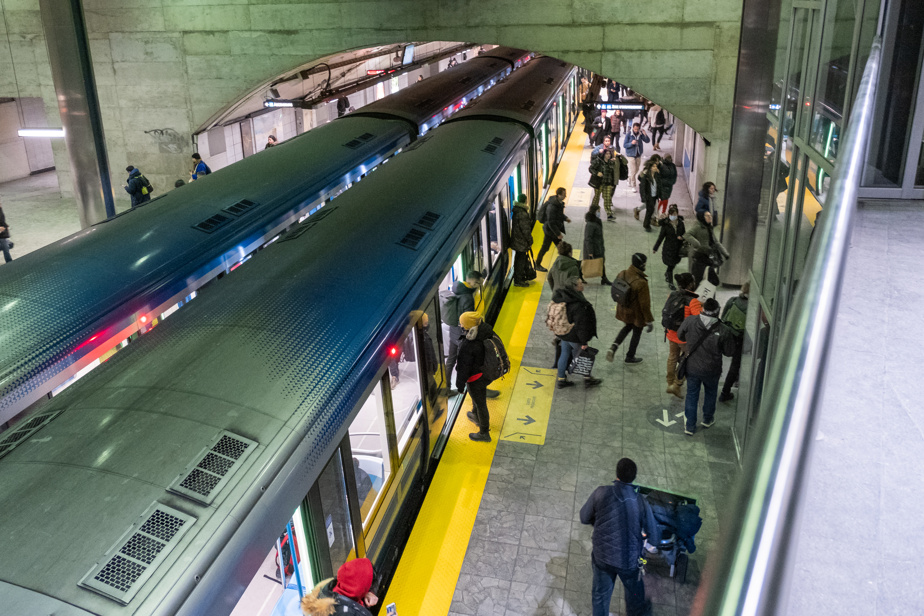Addition of special constables, maintenance workers and “safety ambassadors”: the Société de transport de Montréal (STM) is planning 60 hires to improve safety in the metro and on buses, La Presse has learned.
Faced with the outbreak of violence affecting public transport in Canada, the STM will unveil its “reinforced action plan” for safety on Thursday. In particular, the company plans to “add about 20” special constables, often called inspectors, to its network by November. Everything will be done “gradually” starting in the fall, says general manager Marie-Claude Léonard.
These new staff will mainly be deployed in certain “hotspots” of the network. “Certainly, we can think of the Berri-UQAM station, but more generally, they will be everywhere on the network,” she said.
The STM also says it wants to take into account the deterioration in the cleanliness of certain stations, which “has a significant impact” on the feeling of safety of users. As of this summer, the carrier has decided to create some twenty new cleaning positions in the stations. “We will particularly target downtown stations, which are very affected,” said Ms. Léonard. She quotes in particular Berri-UQAM again, but also the Atwater station on the green line. “We feel that the needs are greater […] in terms of the presence of waste in our facilities”, continues the DG.
From this summer, you will also see new “safety ambassadors” on the metro. These employees, recognizable by their uniform, will have the mandate to “ensure a reassuring presence for users, in addition to detecting potentially problematic security elements”, says Marie-Claude Léonard. “It will involve a specific training of 80 hours. They will be able to de-escalate, but will not be able to intervene or use force. This will then give us a pool of people who can become special constables, ”continues the director. She says she was inspired by practices in Los Angeles, San Francisco and Philadelphia.
Since the beginning of January, numerous violent events have occurred on the Toronto Transit Commission (TTC) system. Security has also been tightly tightened. In British Columbia, the West Vancouver bus drivers union has also called for increased security measures, after a series of violent events in recent weeks. Montreal inspectors and drivers did the same at the end of April. Ms. Léonard does not hide it: “We are dealing with complex human behavior that is sometimes more unpredictable. “The metro remains safe, we want to say it, but currently, it’s the incivility that bothers, we are aware of it. »
The director general of the STM recognizes this: “Adding resources is not a miracle solution”. “It takes a bit of everything: campaigns, presence, and redirecting vulnerable people to the right resources. She also joins the Canadian Urban Transit Association (CUTA), which called in April for governments to fund more “access and overnight admission to social services, so that people in need of help avoid taking shelter” in public transport infrastructure. “We are working with our partners to see what we can do”, concludes Ms. Léonard, recalling that an “increased presence” has already been ensured in recent months in the city center.

